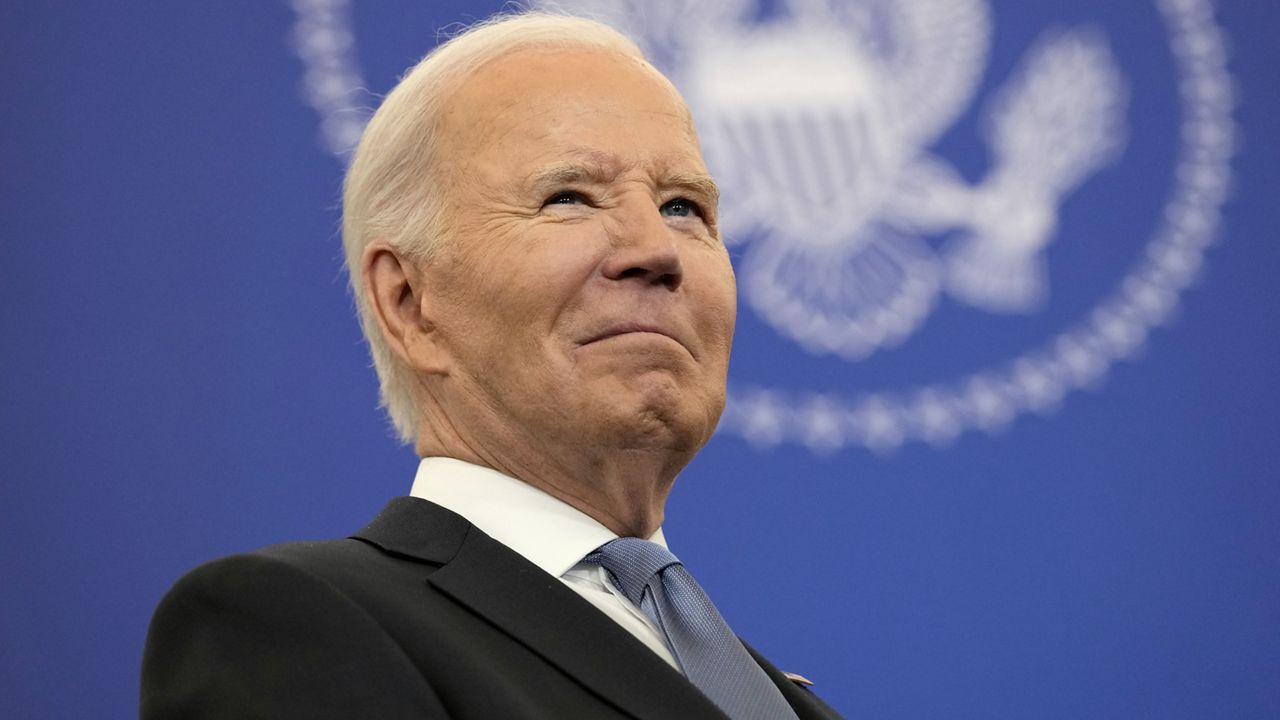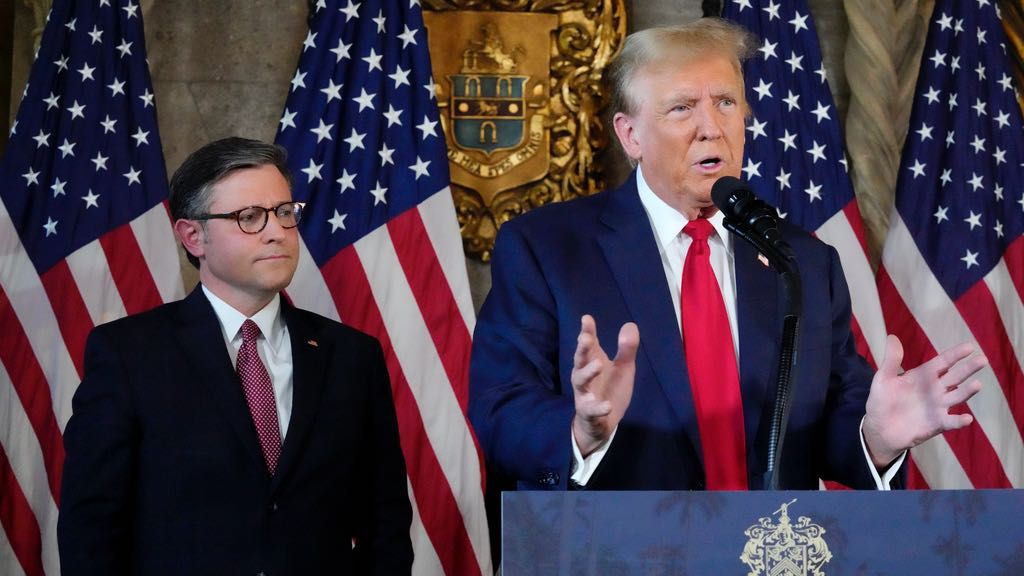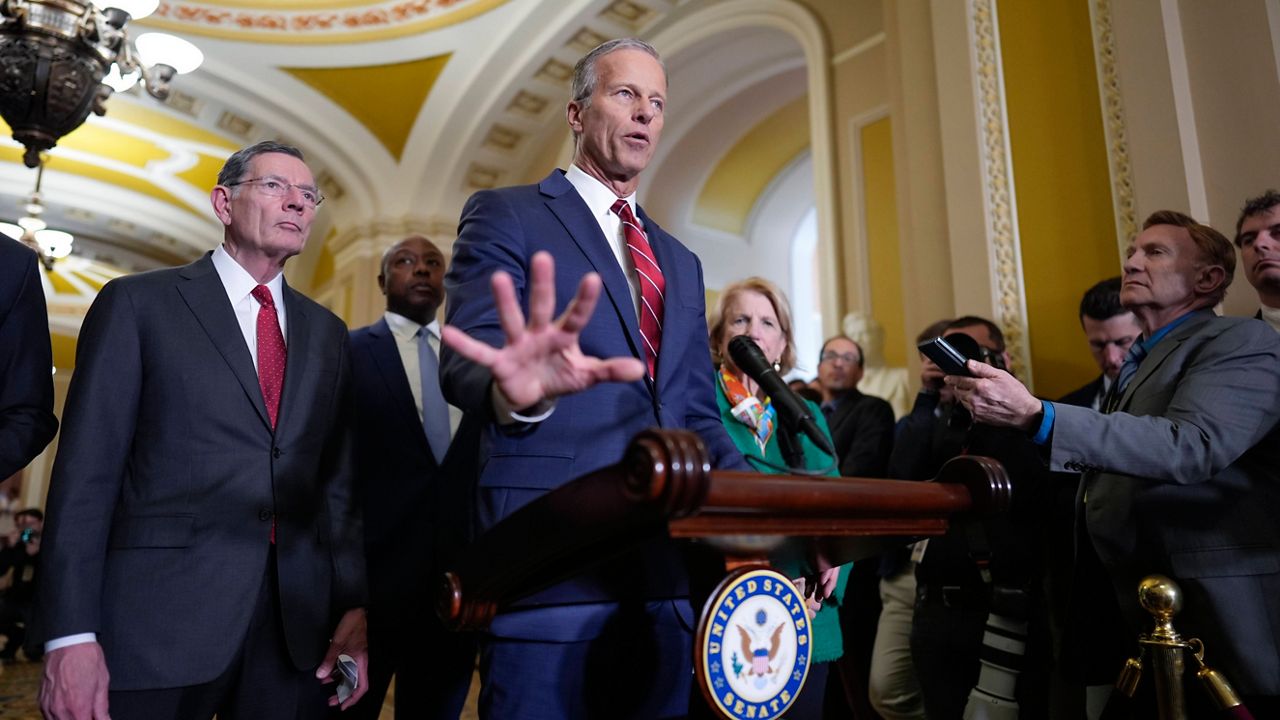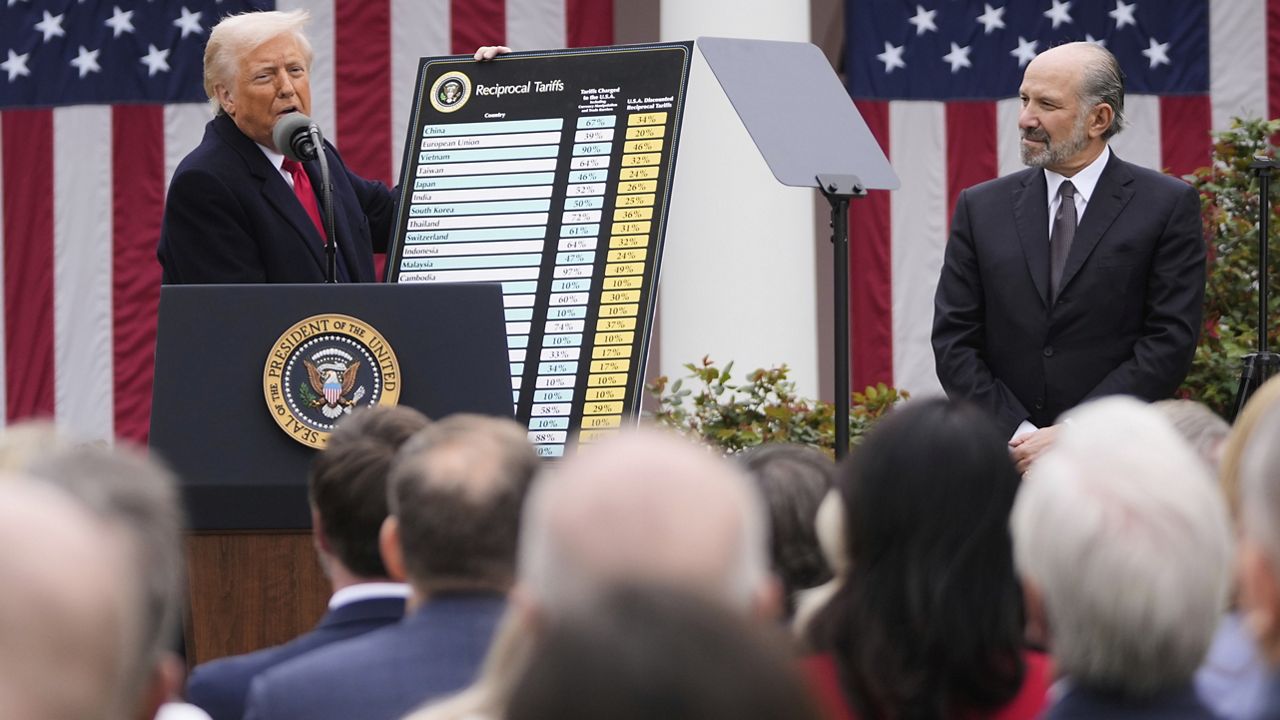WASHINGTON — On Monday, President Joe Biden will watch President-elect Donald Trump take the oath of office. The moment — a rare one in which the outgoing president will witness his predecessor officially become his successor as well — will put a cap not only on Biden’s four years in the White House but also on an extensive political career in Washington that spanned more than five decades.
After spending 35 years in the U.S. Senate, chairing the Judiciary and Foreign Relations committees, and serving two terms as President Barack Obama’s vice president, Biden finally claimed the office he had already sought three times before when he was sworn in as commander in chief in January 2021.
After defeating Trump, the incumbent president, in the 2020 election, Biden took over the highest office in the nation in the midst of a global pandemic and fresh off an unprecedented attack on the U.S. Capitol in which rioters sought to stop the certification of his victory. Standing at his own inauguration, the now-outgoing president vowed to guide Americans through the throes of the virus and unite the country.
Four years later, the virus’ impact on everyday life has faded and Trump has ascended again to the White House. In between, the one-term Democratic president shepherded multiple major pieces of legislation through Congress, saw two significant wars break out in Europe and the Middle East, dealt with peaks in inflation and border crossings, and stunned the country on a debate stage and with a controversial pardon — all culminating with the man he frequently referred to as a “threat to democracy” retaking the Oval Office.
Here are some of the most significant moments in Biden’s four years in the White House that are likely to shape how his presidency goes down in history.
High prices on everything from groceries to gas plagued Biden’s four years in the White House and the public perception of his handling of a crucial election issue — the economy.
Inflation sat at 1.4% when he took office, but pandemic-induced global supply chain snags and Russia’s invasion of Ukraine contributed to a sharp rise in the inflation rate that peaked in June 2022 at 9.1%, the largest 12-month increase in four decades. Many Republicans blamed Biden’s push for billions in pandemic relief that flooded the country as a main cause for the spike.
In a bid to ease the soaring prices, the Federal Reserve increased interest rates, leaving people paying more on mortgages and auto loans.
The consumer price index — the preferred inflation gauge of most economists — eased after peaking but never reached the Federal Reserve's target rate of 2%. The most recent figure, for December 2024, found inflation sitting at 2.9%.
In August 2023, an Associated Press-NORC Center for Public Affairs Research poll found just 36% of U.S. adults approved of Biden’s handling of the economy, even as his administration had set out on a blitz to try to sell his agenda under the name “Bidenomics."
Less than two months after taking office, as COVID-19 still dominated everyday life, Biden notched an early policy victory when Congress passed his $1.9 trillion American Rescue Plan Act, providing aid to state and local governments, businesses, schools and directly to individual Americans, and becoming a key part of his response to the crippling pandemic.
A few weeks shy of his first year in office, Biden got his first significant bipartisan win when he signed a $1.2 trillion infrastructure package into law that poured billions of funds into a major priority of the Democratic president — repairing and revamping the nation’s bridges, roads, railways, ports, waterways and more. The bill also designated money to improve broadband infrastructure and the electric grid, replace lead pipes and build out a network of electric vehicle chargers. As Biden prepares to leave office, more than $568 billion from the bill has been announced for over 66,000 projects around the country.
In the summer of 2022, just months before Republicans would win control of the lower chamber in the midterm elections and strip Democrats of their governing trifecta, Biden scored four major legislative victories.
First, he signed the most significant gun safety legislation in three decades. Next, he signed a bipartisan bill aimed at expanding health care for veterans exposed to toxic burn pits while serving before celebrating another bipartisan piece of legislation, the CHIPS and Science Act, which seeks to boost manufacturing of computer chips in the U.S. in a bid to outcompete China.
Lastly, he rounded out the bulk of his initial domestic agenda when Democrats in Congress got the Inflation Reduction Act — a bill Biden later admitted he wished bore a different name — over the finish line. The nearly $750 billion bill made the largest investment in clean energy and climate initiatives in history and included priorities of Biden’s such as giving Medicare the power to negotiate drug prices and a new minimum corporate tax rate.
Despite the massive investments, Biden struggled to sell the benefits of the bills to the American public on the campaign trail, a reality he seemed to indirectly acknowledge in his farewell speech Wednesday evening.
“It will take time to feel the full impact of all we've done together,” he said. “But the seeds are planted, and they'll grow and they'll bloom for decades to come.”
In August 2021, Biden presided over a chaotic withdrawal of U.S. troops from Afghanistan, ending America’s two decades of military presence in the country. The withdrawal saw 13 American service members killed during a suicide bombing, thousands of Afghans who assisted the U.S. government while troops were on the ground left behind and the country fall to the Taliban.
While he was continuing a commitment to pull out that Trump negotiated with the Taliban before he left office in 2020, Biden was widely criticized for his handling of the withdrawal and soon saw his public approval rating tank and never recover. According to Gallup, Biden started August 2021 with an approval score of 49% and ended the month in which the withdrawal took place at 43%. His rating never reached the 49% benchmark again.
In an interview with Spectrum News on Monday, Biden’s national security adviser, Jake Sullivan, argued that the president “did the right thing by ending America's longest war, bringing our troops home and allowing us to focus on the threats and challenges of the 21st century.”
“I think our view is that history will judge that well,” he said.
Sullivan, however, also acknowledged that the administration learned a lesson in moving slowly to carry out the evacuation, noting they were trying to avoid triggering a collapse in the government in Afghanistan, something that took place anyway.
The former chair of the Senate Foreign Relations Committee came into office pronouncing that “America is back” on the world stage after four years of Trump, determined to prove “diplomacy is back at the center of our foreign policy.”
Over his four years, he worked to shore up relationships with NATO partners and strengthen ties with allies in the Indo-Pacific in a bid to counter China’s growing influence. Such efforts included bringing together two Pacific countries with long-standing frosty relations, Japan and South Korea, for a historic summit at the presidential retreat of Camp David and honing in on relationships with each of the member countries of the so-called Quad, including hosting each leader for a state visit and all four at his Delaware home.
But Biden was also forced to respond to two major wars that broke out overseas during his tenure.
Following Russia’s invasion of Ukraine in 2022, the president worked quickly to rally European partners and other NATO allies around the war-torn country, an effort that has resulted in the alliance providing billions of dollars in aid to Kyiv. Biden’s visit to Kyiv in 2023 also made him the first president in modern American history to visit a war zone where the U.S. does not have an active military presence.
Later, in October 2023, came Hamas’ attack on Israel, sparking a fierce retaliatory campaign from Prime Minister Benjamin Netanyahu in the Gaza Strip and threatening a wider war in the region. Biden became the first U.S. president to visit Israel during wartime and soon helped secure a short-term ceasefire and hostage release deal. In a major victory for Biden in his final days in office, the president on Wednesday announced that both Israel and Hamas had agreed to the first step of a multi-phase proposal he laid out in May that aims to ultimately end the war for good and bring all the hostages home, although Israel has yet to formally approve the pact.
In his speech announcing the deal, Biden proclaimed that the terror network that supported Hamas, including Iran, is weaker as a result of Israeli and U.S. efforts.
But the tens of thousands of Palestinian civilian deaths in Gaza, as the U.S. largely stood by Israel in its retaliatory campaign, sparked outrage with some on the left, causing protestors to disrupt the majority of his public events for months and leading to a period of widespread unrest on college campuses.
Biden’s presidency also brought a new record on an issue that has rapidly risen on voters' list of important topics — illegal border crossings. Crossings hit an all-time high in December 2023 when Customs and Border Protection recorded arresting just under 250,000 people at the border.
Republicans doubled down on their focus on the issue, slamming Biden for his lack of action to crack down on crossings and appearing to cement the topic as key for them in elections.
Biden pushed for passage of a border package worked out over months by a bipartisan group of senators and blamed Trump for killing the bill so he could use the issue on the campaign trail as he sight another term in the White House.
Months before November’s presidential contest, the president announced he was taking executive action to bar migrants who cross the border illegally from seeking asylum when daily encounters hit a certain number. Since then illegal crossings have dropped by more than half compared to the month before the action took effect. The most recent figure released this week had illegal crossings at 47,300 for the month of Dec. 2024.
The president stunned the nation in June 2024, as it was barreling toward an unpopular rematch between Biden and Trump, with a debate performance widely criticized as disastrous.
Facing off against Trump on a CNN debate stage in Atlanta, the incumbent president appeared confused, stumbled over words, seemed to lose his train of thought and at one point declared that “We finally beat Medicare.”
The performance sent alarms blaring within the Democratic Party and set off a flood of reports from the media about how White House aides allegedly hid Biden’s cognitive decline from the public. It all led to a slow-burning pressure campaign to get the president to drop his bid for another term.
After initially insisting he wasn’t going anywhere, Biden eventually relented in July, announcing his decision to leave the race in a post on X, which he quickly followed with another one endorsing his vice president, Kamala Harris, for the job. Democrats swiftly rallied behind Harris, who brought a surge of energy to the party, increasing its hopes for November. But Trump soundly defeated Harris.
On a Sunday evening just a few weeks after Trump won the 2024 election, Biden took the unprecedented step of issuing a sweeping pardon for his son, Hunter Biden, directly going back on his and the White House’s repeated pledge not to do exactly that.
The move saved Hunter Biden of possible prison time stemming from his conviction on federal felony gun and tax charges. But it also went a step further, preemptively sparing the younger Biden from anything he could have done over an 11-year period.
Biden justified his decision by claiming “raw politics” infiltrated the legal proceedings against his son and saying it led to a “miscarriage of justice” as he feared what a Trump administration might pursue in a second term.
The decision and Biden’s criticism of the Justice Department shocked many because it came from a president who vowed to restore norms to the office of the presidency and uphold the independence of the legal system
When Republicans took control of the House in 2023, they vowed to prove that Biden was directly involved in his family’s foreign business affairs, arguing that he was corrupt and a national security threat. Biden repeatedly denied the allegations.
Despite claiming they had a “mountain of evidence” against the president and launching an impeachment inquiry, GOP lawmakers failed to produce any concrete proof that the president profited from his son Hunter’s or his brother James’ business deals or that their professional interests influenced Joe Biden’s actions in office. The committees leading the investigation never introduced articles of impeachment against the president.
Biden made history with some of his choices for key roles in the U.S. government. His pick for his second in command, Harris, made her the nation’s first female, first Black and first South Asian vice president.
Meanwhile, his selection of Justice Ketanji Brown Jackson when a seat on the Supreme Court opened up, put America’s first Black woman on the high court.
According to the White House, Biden also has appointed a record number of women, Black, Latino, AAPI, Native American, Muslim American and LGBTQ people to federal judgeships over his four years in office.
Spectrum News' Ryan Chatelain contributed to this report.










